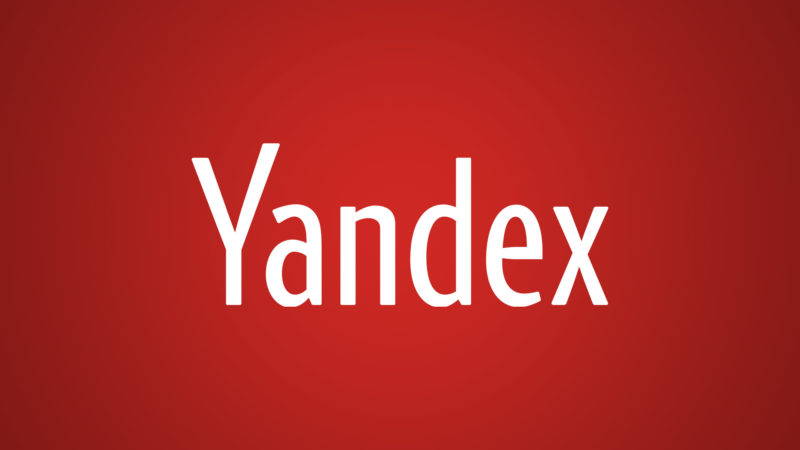Yandex Search: Russia’s Leading Search Engine with Global Ambitions
1. What Is It?
Yandex Search is a web search engine owned and operated by Russia-based tech giant Yandex. Often seen as the “Google of Russia,” Yandex processes billions of queries per month, handling a wide variety of user requests—ranging from local business lookups to news, images, and video searches. Yandex offers an entire ecosystem—Yandex Browser, Mail, Maps, Translate, etc.—all integrated with their search engine at the core.
Which Problem Does It Solve? As a global search provider (particularly strong in Russian-speaking regions), Yandex competes with Google and other search players, delivering regionally optimized results and localized services. For privacy-minded users or those seeking a non-Western alternative, Yandex can be appealing—but from a MyDigitalFortress perspective, balancing data usage, local regulations, and potential **geo-political factors** is crucial.

2. Technical Foundations
Search Algorithms & Localization
Yandex uses proprietary machine learning algorithms, referred to as MatrixNet, to rank and retrieve web content. Their key strength lies in Russian language processing and Cyrillic-based morphological analysis, giving Yandex an edge in search result relevance for Russian users. The engine also handles a growing list of global languages, but its greatest accuracy remains in Eastern European contexts.
Associated Services & Integration
Similar to Google’s ecosystem, Yandex integrates search with mail, maps, translation, and cloud storage (Yandex Disk). This synergy helps unify user experiences across devices and fosters brand loyalty. However, from a MyDigitalFortress viewpoint, it raises concerns regarding data consolidation: multiple services funneling information to Yandex’s central analytics pipeline.
Ad Targeting & Data Use
Like most commercial search providers, Yandex’s business model hinges on **ad revenue**. Yandex collects usage data and query logs to refine personalized search and targeted advertising. Official policies detail how data is processed, but **transparency** can vary—particularly under **Russian data retention laws** and potential oversight by local authorities.

3. Who Is It For?
Yandex Search caters to:
- Russian-Speaking Users: Those seeking regionally optimized or Cyrillic-literate search results.
- Users Wanting a Non-Western Alternative: People exploring alternatives to Google or Bing, interested in Yandex’s local strengths.
- Local Businesses in Eastern Europe & CIS: E-commerce or content sites aiming to reach Yandex’s user base effectively.
- Privacy & Data Control Enthusiasts (with caution): Some might see Yandex as a break from Western tech, though it has unique data policies and compliance requirements in Russia.
MyDigitalFortress readers concerned about Russia-specific data regulations or potential state monitoring should weigh whether Yandex’s benefits (e.g., language accuracy) surpass any privacy risks in a non-EU or non-US data environment.
4. Use Cases & Real-World Examples
- Local Language Searches: Russian-speaking expats, tourists, or students use Yandex to find local restaurants, events, or official info with more relevant results than global engines.
- Advertising to Russian Market: Businesses targeting Eastern European audiences run Yandex Direct campaigns for PPC ads, harnessing region-specific algorithms.
- Comparison Shopping: Some users cross-check Yandex’s search results or Yandex Market for product listings, comparing them to Western-based e-commerce indexes.
- Research or Competitive Analysis: Observing how Russian-language content ranks in Yandex can reveal local SEO differences and content optimization strategies.
5. Pros & Cons
Pros
- Strong Russian Language Relevance: Superior morphological analysis and local indexing for Cyrillic content.
- Comprehensive Ecosystem: Ties with Yandex Mail, Disk, Maps, Translate, offering integrated experiences.
- Non-Western Option: Diversifies search engine usage beyond Google/Bing, potentially bypassing certain Western biases.
- Localized Advertising Channel: For businesses aiming at Russian markets, Yandex Direct provides robust ad targeting.
Cons
- Potential Data Privacy & Censorship Issues: Subject to Russian regulations, raising questions about user data security or state oversight.
- Less Global Coverage than Google: Some international queries or English-language content may be less comprehensive or updated.
- Ad-Driven Business Model: Personalized ads rely on user tracking, search logs, or cross-service data sharing.
- Geopolitical Complications: Economic sanctions, compliance with Russian laws, or internet governance stances may affect usage outside Russia.
6. Getting Started
Interested in trying Yandex Search? Here’s a simple overview:
- Visit Yandex.com or Yandex.ru: Depending on your language preference, choose the main site or the Russian portal to see localized results.
- Set Language & Region: Adjust language options in search settings for best local coverage (Russian, Ukrainian, etc.).
- Explore the Ecosystem: If you want email, cloud storage, or maps from Yandex, create a Yandex ID for unified sign-in across services.
- Monitor Privacy Preferences: Check Yandex’s data policy, tweak personalization or ad settings if you prefer minimal tracking.
- Try Yandex Browser (Optional): For deeper integration, Yandex’s custom browser might offer synergy with search. Evaluate any data-sharing preferences carefully.
7. Conclusion & Next Steps
Yandex Search provides a regionally strong, feature-rich alternative to Western engines like Google, especially for Russian-language queries. Its robust language processing, ecosystem integration, and advertising platform make it a go-to option in Eastern Europe or for those wanting diversity in search providers.
However, from a MyDigitalFortress perspective, privacy and data usage remain key concerns. Russia’s strict data localization laws and potential government oversight raise questions about logs, censorship, or user anonymity. Proceed with caution if you prefer minimal data retention or if you have reasons to avoid any state-level oversight.
Next steps? Try Yandex for localized results or marketing to Eastern Europe. Compare findings with your typical engine, watch how it personalizes queries, and weigh the geo-political considerations against the convenience of non-Western search solutions. By understanding the potential privacy trade-offs, you can incorporate Yandex judiciously into your personal or professional “digital fortress.”





